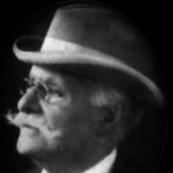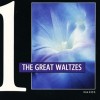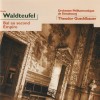| Country: | France |
| Period: | Impressionism |
Biography
Emile Waldteufel (German for forest devil) was born in Strasbourg to a Jewish Alsatian family of musicians. His father Louis had a respected orchestra, and his brother Léon was a successful musician. When Léon won a place to study violin performance at the Conservatoire de Paris, the entire family followed him there. It was in Paris that Waldteufel would spend the rest of his life.
Waldteufel studied the piano at the Conservatoire de Paris from 1853 to 1857. Among his fellow pupils was Jules Massenet. During his time at the conservatory, Louis Waldteufel's orchestra became one of the most famous in Paris, and Émile was frequently invited to play at important events. At the age of 27, Émile became the court pianist of the Empress Eugénie. After the Franco-Prussian War had dissolved the Second French Empire, the orchestra played at Presidential balls at the Élysée. At this time only a few members of the French high society knew of Émile; he was nearly 40 before he became better known.
In October 1874 Waldteufel played at an event that was attended by the Prince of Wales and future King Edward VII of the United Kingdom. The Prince was enthralled by Waldteufel's "Manolo" waltz, and was prepared to make Waldteufel's music known in Britain. A long-term contract with the London-based editor Hopwood & Crew followed. Part of the company belonged to Charles Coote, director of the Coote & Tinney’s Band, the first dance orchestra in London. Through these means, Waldteufel's music was played at Buckingham Palace in front of Queen Victoria. Waldteufel dominated the music scene in London and became world-famous. During this period he composed his best known works, many of which are still heard today around the world. He became well known for the waltz "Les Patineurs" or the "Ice Skaters", composed in 1882.
Waldteufel gave concerts in several European cities, such as London in 1885, Berlin in 1889 and the Paris Opéra Balls in 1890 and 1891. He continued his career as conductor and writing dance music for the Presidential Balls until 1899 when he retired.
In 1915 Waldteufel died in Paris at the age of 77. His wife, Célestine Dufau, a former singer, had died a year earlier. They had two sons and a daughter.
Waldteufel conducted with a stick rather than the then-customary violin bow. His compositions were first created at the piano and later orchestrated. The typical Waldteufel orchestra consisted of strings and a doubled woodwind section, two cornets, four horns, three trombones, and a tuba, along with percussion.
Waldteufel's music can be distinguished from Johann Strauss II's waltzes and polkas in that he used subtle harmonies and gentle phrases, unlike Strauss's more robust approach. The noted 19th century American bandmaster and dancing instructor Allen Dodworth referred to the long legato melody lines of Waldteufel's compositions as "Hymn-tune waltzes", adding "They are beloved of pianists on account of the great rest they give to the hands, which is why they cling to them with loving laziness." It was considered that Waldteufel's music was not revolutionary, which explained why his waltzes fell out of favor as the age of Impressionism came to Paris.








